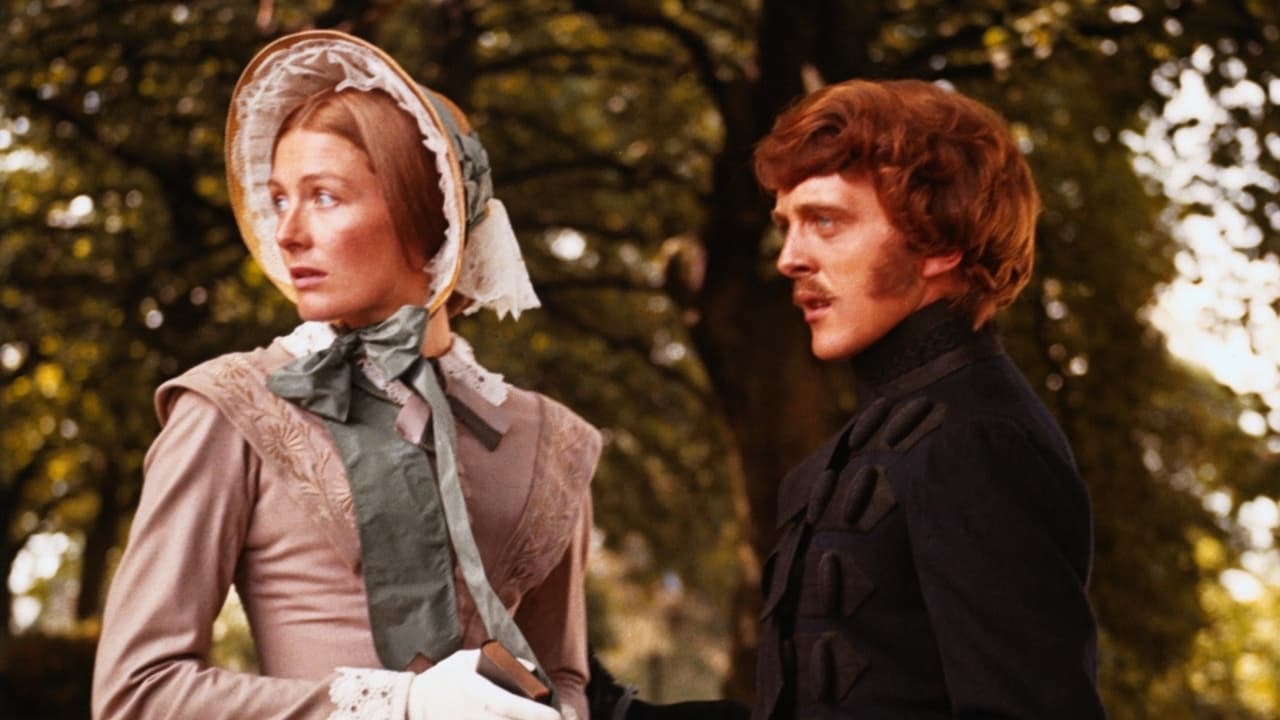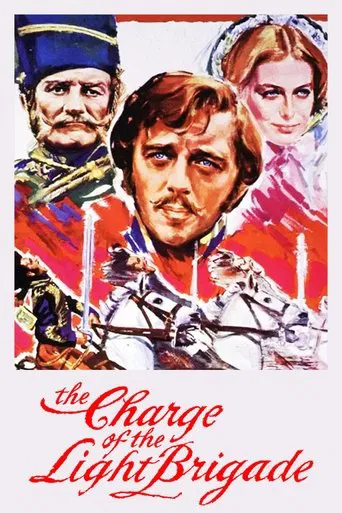Plustown
A lot of perfectly good film show their cards early, establish a unique premise and let the audience explore a topic at a leisurely pace, without much in terms of surprise. this film is not one of those films.
InformationRap
This is one of the few movies I've ever seen where the whole audience broke into spontaneous, loud applause a third of the way in.
Bessie Smyth
Great story, amazing characters, superb action, enthralling cinematography. Yes, this is something I am glad I spent money on.
Phillipa
Strong acting helps the film overcome an uncertain premise and create characters that hold our attention absolutely.
fullheadofsteam
This movie was made during the height of protest against the war in Vietnam. It absolutely looks and feels like an anti-war movie, so should be taken at full face value. That said, it is particularly brilliant in its portrayal of arrogant, head-strong British military leaders who were, at that historical time period, appointed primarily according to their social and economic status. A plus factor to enjoyment of this stylized and time-topical film is the satire, some of which is best exemplified in the intermittent animated map and battle movement graphics. It truly is black comedy at its best, because if you cannot or will not recognize the folly and inwardly scoff, laugh at it (in recognition of flawed human nature), you risk being engulfed only in the blatantly flawed battle, and insult to a vainglorious English aristocracy and government, if which you choose to cling to can engulf you in a distress from which you might not recover.
SnoopyStyle
Britain is still basking in glow of Waterloo over 30 years before. Lord Cardigan (Trevor Howard) is a hard commander of traditions. He dislikes Captain Nolan (David Hemmings) who actually has combat experience in India which makes him inferior to those who got their rank through their class status. Waterloo veteran Lord Raglan (John Gielgud) commands the British forces but he proves to be a poor one. This chronicles the Brits in peace as they start the Crimean War and fight the Battle of Balaclava on October 25, 1854.For a movie belittling the British military for being tradition-bound, this is an overly traditional historical drama. I don't know how important is the black bottle affair but nobody outside of Britain knows it and nobody cares. It takes an hour to start the war and that's 30 minutes too long. On the other hand, I really like the animation. It explains complex ideas in a short and simple fashion. There are lots of extras and the battles are impressively staged. The commanders are portrayed not merely incompetent but rather idiotic. It's not just the fog of war, arrogance and miscommunication. These guys are really stupid and worst of all lazy.
Robert J. Maxwell
A bloody war, the reasons for which seem almost to have been made up after the decision to wage it. There were lies, rumors, and bickering at the top. The Russians might come south and take Turkey, which would threaten the British passage to India somehow. No one seems to have been very clear about the causes. Perhaps it had to do more with national honor during the Victorian period. (This is 1859.) Maybe it had something to do with promotion in the officer corps, with combat experience playing a part. The populace was stirred up by the media and generally seems to have been enthusiastic about the prospect of great battles and great victories. Such a calamity could never happen today.Every movie about war reflects the period in which it was made, and it's interesting to compare this film, made in 1968, with the 1936 version starring Errol Flynn and directed by Michael Curtiz. The earlier film is much more exciting and far less ambiguous. We are good and they are evil. And the evil ones aren't the Russians (who are hardly mentioned) but some fictional tribe of Islamic terrorists. In the 1930s, the Russians had not yet become our enemies and were about to become our Allies.In 1968, the movie was a comment on the widespread anti-war sentiment that was generated by a war in Vietnam whose means and objectives no one seemed able to clarify. Was it really all about "body counts"? Were we really trying to kill more "communists" than they were able to kill our own troops? The controversy continues.The apparently sensible hero of this tale is Nolan, played by David Hemmings, recently arrived from India, where he has known battle, and held in contempt by many of his fellow officers because the Indian Army is a caste subordinate to the British Army.At the top, among the generals and Lords who are running this business, there is rivalry, bitterness, an adherence to ritual, and sloth in making decisions. The three cretins are Lords Lucan, Raglan, and Cardigan. (Two of them are sweaters, aren't they?) The Light Brigade, headed by Cardigan, Trevor Howard, is either given the wrong order or misinterprets the order as received. In any case, he leads the charge up the wrong valley. The causes of this disastrous error are never made explicit. And in fact there is so much confusion that I, at least, was often unaware of who was where and what they were doing.I don't know how closely the film follows the historical record. The story includes a correspondent but it might well have given a small role to George McLellan, an American observer, who later led Lincoln's Army of the Potomac to one defeat after another. Nor do we meet Florence Nightingale on her first trip to a battlefield.Somebody like Nightingale was needed too. Medical practices were appalling. Men died left and right of 19th-century infectious diseases like cholera. The germ theory of disease was not even a theory yet, so surgeons wouldn't wash their bloody hands between amputations.The impression we get is that this is pretty realistic. In most such films, for instance, the horses are taken for granted. Here, without any sentiment whatever, we realize the importance of their care and training.There is little in the way of preaching. Nolan has a couple of pithy apothegms but no speeches about the futility of war. If a war is to be fought, it should be fought by professionals to the death. Lord Raglan, John Gielgud, describes the still unstained battlefield as "pretty" for a visiting lady who happens to be the main squeeze of Lord Cardigan, Trevor Howard. There is a ludicrous scene in which, before having sex, they undo each others' corsets.Humor isn't entirely absent, as far as that goes. Cardigan and Lucan muttering curses at each other under their breath. And Raglan complaining that the statue of the Duke of Wellington that has been temporarily placed outside his office window is blocking the light at his desk. People speak to him of urgent matters but he stands at the window, preoccupied with the presence of that damned heroic statue of the Duke. Howard is a stereotypical blustering, red-faced British officer with mutton-chop whiskers. All the officers appear to shout at the top of their lungs, like DIs at Parris Island. A few ridiculous animated sequences, a la Monty Python, illustrate collective experiences and actually contribute to our understanding of what's up, rather than being a distraction.Violence in its political forms of warfare and terrorism seem so hard-wired into human nature that I fear the solution lies not so much in some vague willful desire for peace but in biology itself. The people who will finally wean us of the desire to kill each other will be not preachers but neurosurgeons.
TedMichaelMor
This is a superb account of the tragic charge of the Light Brigand during the Battle of Balaclava. It is a fine x-ray of the abusive British military and class system and a thoughtful and colourful exposure of the propaganda of war.I recall as a teenager reading Cecil Woodham Smith's famous book "The Reason Why", which first acquainted me with the event. I have long considered the tragedy as what happens when military intelligence is flawed or lacking.The film has a sixties tone—long on detail, with side stories and colourful little touches like splendid Richard Williams's animations of British publications from the time of the event.I am not certain how well the film narrative corresponds to a recent PBS documentary on the topic. My memory is not that good. It seem that the role of Captain Nolan might have been other than depicted here. He did not have an affair with Captain Morris' wife. However, I think the film is not only accurate for the most part but depicts the moment in history vividly and with great feeling.This is a great movie, a masterwork. Watching it moved me.

